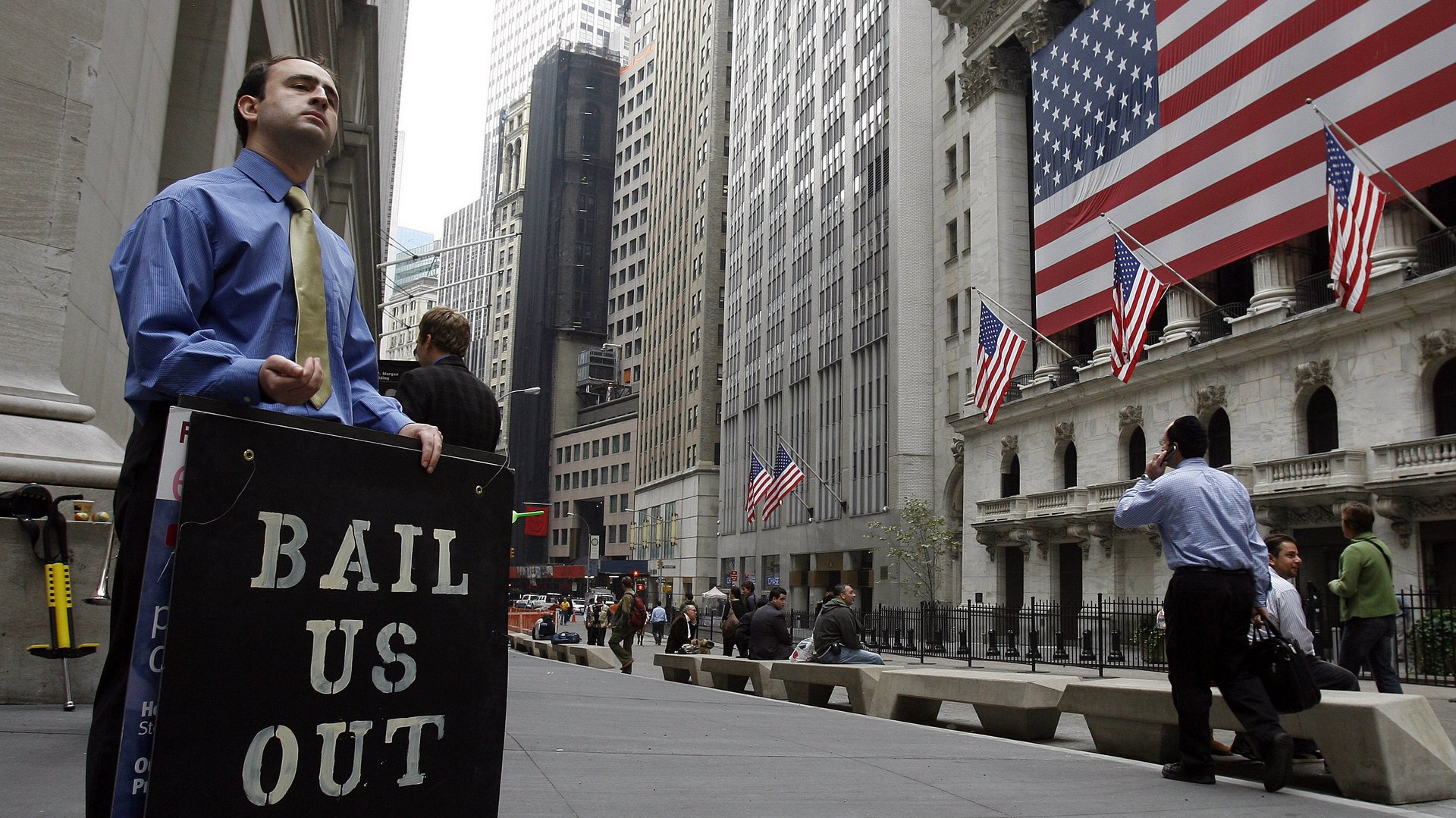Bezos, Gates, and Bloomberg donated 0.004% of their net worth to fight the next financial crisis
Since 2009, central banks and governments around the world have been in overdrive trying to prevent another financial crisis. Hundreds of pages of extra legislation, new supervisory boards, stricter capital requirements and other regulations have been imposed on the banking industry to make sure they can’t bring down the global economy again.


Since 2009, central banks and governments around the world have been in overdrive trying to prevent another financial crisis. Hundreds of pages of extra legislation, new supervisory boards, stricter capital requirements and other regulations have been imposed on the banking industry to make sure they can’t bring down the global economy again.
But let’s face it, another financial crisis will happen. It’s completely inevitable. As a Bank of England policymaker said earlier this year, there simply isn’t the data to predict when the next crisis will come, or what it will be.
To prepare for that eventuality, investors and philanthropists—including Bill Gates, Jeff Bezos, Mike Bloomberg and Pete Peterson—have donated $10 million to Yale’s Program on Financial Stability to set up a crisis-response project. Frankly this is small change to four men with a combined net worth of more than $200 billion. Still it’s a worthy cause. Instead of adding to the research and academic efforts on crisis prevention, this project is designed to fill a gap in the knowledge of what policymakers should actually do when there is a crisis.
Andrew Metrick, head of the program at Yale, experienced this problem firsthand after the 2008-2009 crisis. Working with the Obama administration to pass financial regulation laws, he said, it became clear that people in high places didn’t really know what to do. Too often the academic research was incomplete or irrelevant, Metrick told Quartz:
[This crisis] was somewhat of a new thing because we collectively—as regulators, central bankers and academics—didn’t think of financial crises as something that happened to rich countries anymore, a little like tropical diseases, they just happened in emerging markets. So when it did happen it was a shock and exposed the knowledge gap.
He started the program at Yale in 2013 to fix this, believing that a private institution could take on this issue while public institutions were busy with crisis-prevention measures. The goal is also to preserve knowledge of financial crises and past projects have helped train or worked with central bankers from all over the world.
This latest project aims to eventually create an online platform to provide real-time support for dealing with a crisis. Starting in July, Metrick and a team of researchers will document all the interventions made during financial crises in the past century. Then they plan to codify the interventions into best practices or—at least—mistakes to avoid. Ultimately they want to turn the knowledge of past crises into actionable real-time responses for the next one. It’s an ambitious project Metrick hopes to see completed in five years, with a beta program available by the end of 2019.
It’s also meant to be international, so policy makers anywhere in the world can share data and get responses. “If what we come out with is something that is US-focused then we have failed,” said Metrick.
Gates, Bezos, Bloomberg and Peterson have put up more than three-quarters of the total $10-million donation, though they will have no say or governance over the project. (Metrick declined to say who the other funders are.) The Yale program has also expanded its advisory board to include former US Federal Reserve chairman Ben Bernanke, Bank of Mexico governor Agustín Carstens, Kenneth Rogoff—a former chief economist at the IMF—and Masaaki Shirakawa, former governor of the Bank of Japan. The project is supposed to be useful to policymakers who have to make a decision in a crisis, and the board is designed to provide feedback on whether this has been achieved by those who have had to make decisions in a crisis before.
Is Metrick concerned that using past data and experience won’t be sufficient for a future crisis that’s likely to take an unknown form? Not really, he says, because the nature of financial panics has hardly changed over time. In fact, the project is named after Walter Bagehot, the British journalist whose 150-year-old advice to central bankers in times of crisis is still a widely used theory today.
“We make the same mistakes over and over again,” Metrick said. “Even if all we do is figure out how to fight a crisis as we’ve had them in the past successfully, that would be some kind of improvement.”